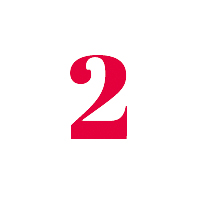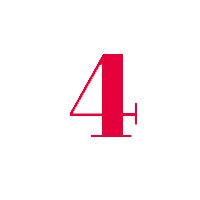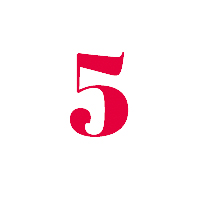This guide is designed to support graduate students in developing successful scholarship applications. It is divided into three parts:
Please also consult:
Before You Start
Before you start putting together an application, consider a few things:

Eligibility Criteria
Are you eligible for the particular scholarship program? Each scholarship program has a set of eligibility criteria for applicants, based on the study level (Master's/PhD), disciplinary area, immigration status, etc.

Timelines
Make sure you have enough time to put together application materials. Aim to complete a draft research proposal at least a few weeks before the due date if you plan to seek feedback (always recommended). Referees will also need time to write a recommendation letter. Finally if you need to order official transcripts, allocate sufficient time for this.

Evaluation Criteria
This is what the reviewers are instructed to follow when assessing the merit of your application. As an applicant, you need to ensure that each component of your application highlights your strengths in these evaluated factors. Academic excellence and research potential are often two important criteria, but they are not the only ones - some competitions place an emphasis on leadership skills, or ask you to highlight your previous research or current training environment.
Tri-council Doctoral and CGS-Masters evaluation criteria, the most common scholarship programs for York graduate students, are listed below:
Tri-Council Doctoral Scholarship Evaluation Criteria
Research ability & potential, which includes:
- Quality of research proposal;
- Relevant training and experience;
- Quality of research contributions (publications, presentations, other outputs);
- Enthusiasm for research, originality, initiative and relevant community involvement;
- Ability to communicate clearly in written and oral formats.
Relevant experience & achievements obtained within & beyond academia:
- Scholarships, awards and distinctions;
- Transcripts and other academic records;
- Professional, academic and extracurricular activities.
CGS-Master's Evaluation Criteria
Academic excellence:
- Academic record;
- Scholarships and awards held;
- Relative standing (if available).
Research Potential:
- Quality and originality of contributions to research and development;
- Relevance of work experience and academic training to field of the proposed research;
- Significance, feasibility and merit of the proposed research.
Personal characteristics & interpersonal skills:
- Work experience;
- Leadership experience;
- Ability to communicate clearly in written and oral formats.
Putting Together Your Application
Developing A Successful Research Proposal
Regardless of the scholarship program to which you are applying, your research proposal (also called program of study or a research statement) should demonstrate the merit and potential of your research.
If this is your first time writing a research proposal for funding, you should keep in mind that the purpose of this document is different from academic essays, articles, or thesis proposals. A grant proposal should be clear, concise and engaging. It must persuade the reviewers that your research plan is significant, solid, and worthy of funding in view of the evaluation criteria. Typically, your application will be reviewed by a multi-disciplinary committee of reviewers who are knowledgeable about research but likely not familiar with your particular research area.
A well-organized research statement typically includes the following components (often but not necessarily in this order):

INTRODUCTION AND BACKGROUND
Provide background for your research topic. Situate your proposed research in relation to a topic of general interest that will immediately grab a reader’s attention (current issues, health, environment, immigration, etc.). Keep it relatively brief (1-2 paragraphs, depending on the overall length of the proposal).

RESEARCH TOPIC AND SPECIFIC QUESTIONS
Be clear and specific. Explicitly outline your research questions early in the statement.

OBJECTIVES AND JUSTIFICATION
Why is your proposed study important? What gap in current knowledge does it aim to address? What impact will answering this research question have on the field, on the community, on the world?

LITERATURE/RESEARCH CONTEXT
Reference the most important scholarly literature on the topic in order to set your topic, question, and justification in its proper context. The context demonstrates that you know the terrain of your field and the area in which you seek to make an original contribution. It also provides non-specialist adjudicators with necessary background and context.

RESEARCH METHOD (MAY INCLUDE HYPOTHESES OR A THEORETICAL PERSPECTIVE)
It is critical that the research method you have selected demonstrates your superior research ability, potential and vision. It must be appropriate to your field and project, and it must also come across to adjudicators as realistic and doable. Adjudicators are looking to see if your method allows you to effectively answer your research questions within the scope of a thesis or dissertation. In social science research, the research method may be framed in a particular theoretical perspective. In science research, the methodology may be preceded by hypotheses.

CONTRIBUTIONS AND CONCLUSIONS
Indicate the significance and/or implications of the research. Why are you pursing answers to this research question, and why do those answers matter? To what or whom do they matter, and what will change—in the field, in the community, in the world—once you’ve answered this question?
To put it differently, any compelling proposal has to provide a clear description of the following:
The What
The argument. What exactly are you proposing to investigate?
The Where
In which context(s)? Readers need to understand the fit with the field.
The Why
Rationale or justification for why such an investigation/idea should/must be proposed, i.e., what is lacking in the field currently?
The So What
The significance of the argument and what it proposes. Why does your research matter and in what ways?
The How
Methodology—what you are going to do to answer the proposed questions? Why have you chosen this method (which can be related to “where” in the field, i.e., what else has been done already in the field?)
A clear statement of any skills and qualifications possessed or required essential to your methodology; for instance, you may describe your previous research and training, language requirement, equipment/facility, or access to research participants, all of which should show that you are well equipped to undertake the project.
It is common that your proposal goes through multiple draft – review – revision cycles. Plan to prepare your first draft well ahead of the deadline.
NOTES ON FORMATTING
Documents for grant applications are generally single-spaced, written in Times New Roman or another standard font, size 12, with sufficient margins (a minimum of 2 cm). It is also a good idea to number pages and include your name in the header. Review the program guidelines to see if there are particular presentation standards for the scholarship you are applying for. A few tips:
- if references must be included in the page limit, a smaller font can be used for them.
- consider organizing your pages by using headings, bolded or underlined fonts for keywords, as appropriate.
Making Use of Every Component of your Application
Depending on the scholarship program you are applying to, you are required to gather additional information relevant to your research such as your other research contributions, past achievements, professional experience, and your training environment. If a CCV (Common CV) is required, then this document should include most of your academic and professional background. Reference letters and transcripts are also often required.
To ensure your application is as competitive as possible, it is critical that you review the evaluation criteria and the format of the application and highlight areas that matter to the reviewers in the most organized way, following specific application instructions.
Tips, Common Questions And Other Resources
Summary of Key Items
Below is a summary of key items to remember while working on an application:
Frequently Asked Questions
Other Resources
Tips and myths to consider when preparing your SSHRC application
Making your application stand out (video produced by NSERC)
Contact Us
If you have questions about putting together an application, we are here to help! Often, your graduate program is the first place of contact and they may also provide support in the form of a workshop or peer review session. Please contact the Research Officer or Scholarship and Awards Coordinator by visiting our FGS Staff Directory.
